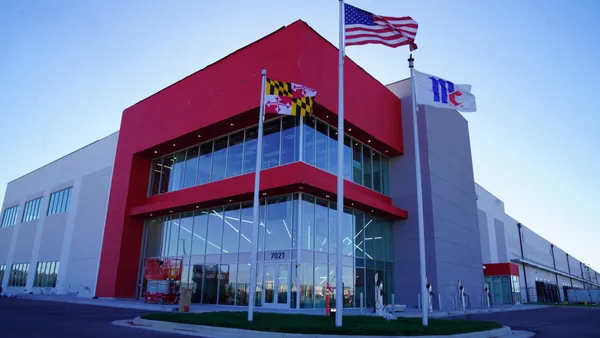Dive Brief:
- Provo, Utah is North America's fastest-growing tech employment market since 2010, even surpassing San Francisco, according to a new report from Cushman & Wakefield identifying 25 cities where tech is having the biggest impact.
- The Tech Cities 2.0 report also found that the booming tech industry is having a tremendous impact on the commercial real estate market; in the first half of last year, 42% of the square footage from North America's top 100 leases were signed by tech companies. In the top 25 tech cities, property prices increased an average of 59% since 2010.
- Although Silicon Valley remains the heart of the tech sector, the report found that New York City has seen significant growth, with stronger tech employment there than other occupational sectors. Ken McCarthy, principal economist for Cushman & Wakefield, said New York City is emerging as the "creative center" for the industry.
Dive Insight:
The tech industry has been an economic engine for the top 25 cities listed in the report. Total employment has increased 2.1% a year since 2010 in those cities, compared to 1.4% a year for the rest of North America.
And the expectation is that the employment rate there will continue to outpace the rest of the economy — Moody's Analytics and Oxford Economics predict those 25 cities will see 1.2% employment growth a year through 2020, compared to 1% for the rest of North America.
The new report, the second iteration of the Tech 25 list, put particular focus on the impact on real estate, especially in downtown areas. Robert Sammons, senior director of northern California research for Cushman & Wakefield, said in a statement that the trend was for tech firms to take "large chunks of high-rise buildings and trophy assets in dense urban areas — in addition to keeping their sprawling campuses in the suburbs."
The urban office space helps recruit workers who want to live or work downtown, and Sammons said that also meant buildings that were "mixed-use, walkable, bikeable and near mass transit."
Given the sustained economic boom, it's no surprise that cities are trying to attract tech, both startups and established firms. The clamor for Amazon's HQ2 shows that enthusiasm. However, the crunch of new money has also caused problems in accessibility of affordable housing in cities like San Francisco and Seattle, a major concern for planners.
The report also names five cities on the outside of the list that could still see growth: Detroit, Pittsburgh, Phoenix, Houston, and Tampa FL. Detroit, for example, could see growth because of auto-related tech jobs, while Phoenix's low cost of living and doing business could attract west coast firms.














